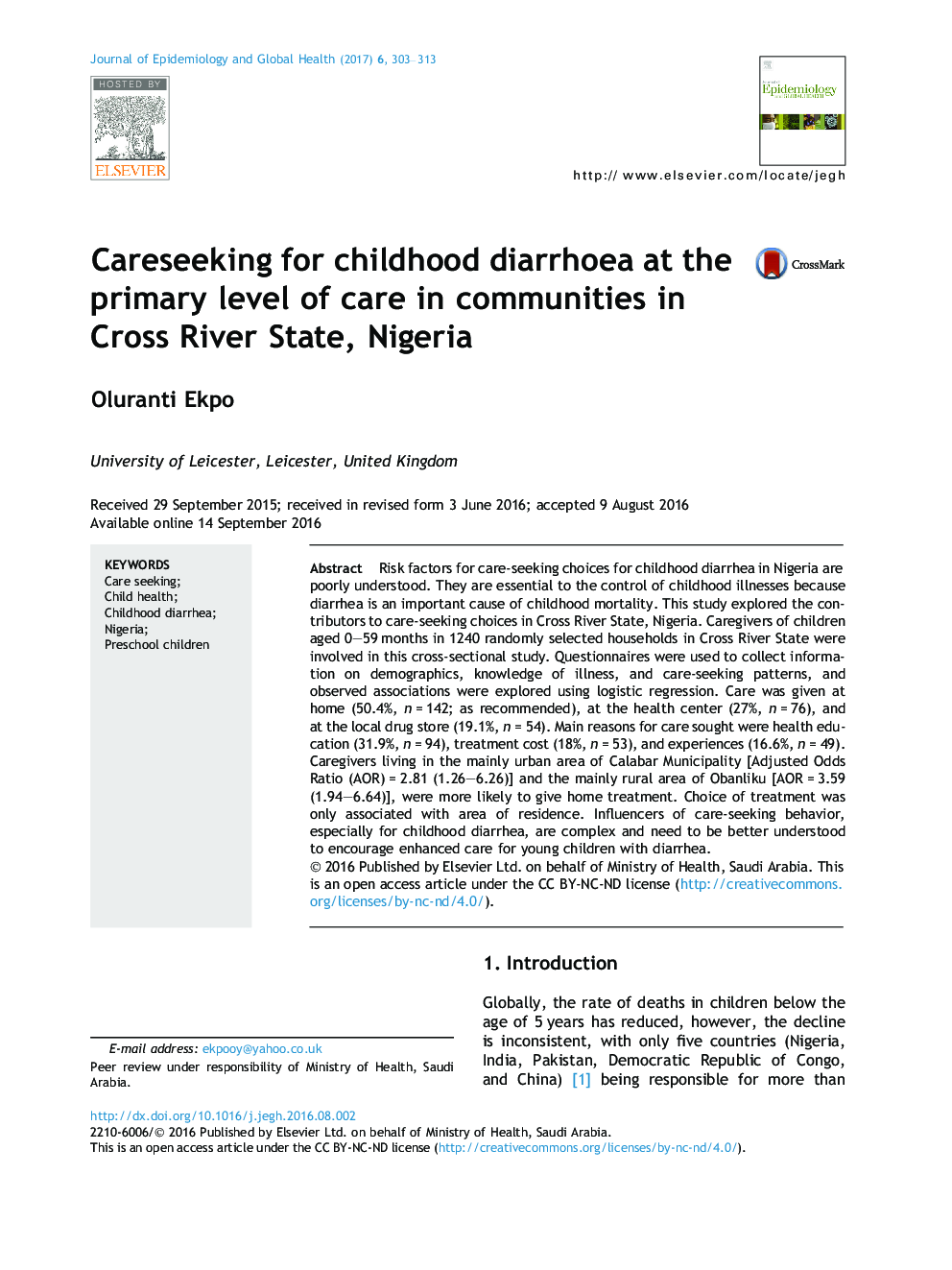| Article ID | Journal | Published Year | Pages | File Type |
|---|---|---|---|---|
| 5662933 | Journal of Epidemiology and Global Health | 2016 | 11 Pages |
Risk factors for care-seeking choices for childhood diarrhea in Nigeria are poorly understood. They are essential to the control of childhood illnesses because diarrhea is an important cause of childhood mortality. This study explored the contributors to care-seeking choices in Cross River State, Nigeria. Caregivers of children aged 0-59 months in 1240 randomly selected households in Cross River State were involved in this cross-sectional study. Questionnaires were used to collect information on demographics, knowledge of illness, and care-seeking patterns, and observed associations were explored using logistic regression. Care was given at home (50.4%, n = 142; as recommended), at the health center (27%, n = 76), and at the local drug store (19.1%, n = 54). Main reasons for care sought were health education (31.9%, n = 94), treatment cost (18%, n = 53), and experiences (16.6%, n = 49). Caregivers living in the mainly urban area of Calabar Municipality [Adjusted Odds Ratio (AOR) = 2.81 (1.26-6.26)] and the mainly rural area of Obanliku [AOR = 3.59 (1.94-6.64)], were more likely to give home treatment. Choice of treatment was only associated with area of residence. Influencers of care-seeking behavior, especially for childhood diarrhea, are complex and need to be better understood to encourage enhanced care for young children with diarrhea.
